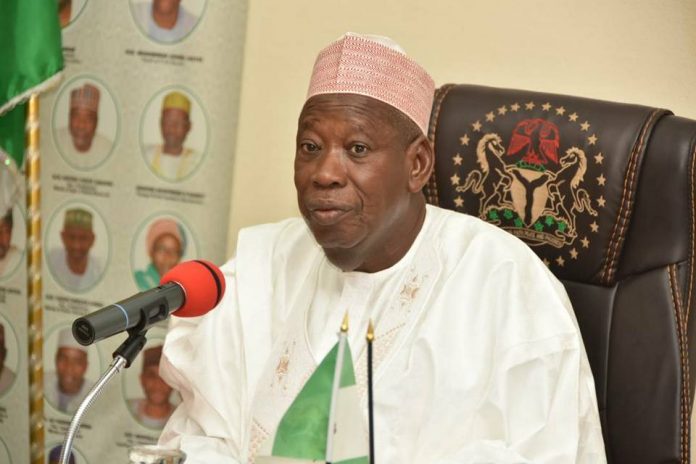“In the 1970s, many will recall that in Kano when you go towards Bompai and you pass the Central Hotel, the sounds and sights and smells of industries were so pervasive,” said Engineer Ahmed Mansur, President of the Manufacturers Association of Nigeria (MAN).
Mansur said this at a recent sensitisation meeting on the Kano State Turnaround Project as he recalled the industrialisation era of Nigeria’s Centre of Commerce.
- Quit notice: South west governors meet Miyetti Allah
- How we will share 3,557 COVID-19 vaccines coming to Kano
However, most of the industries have been a shadow of their past, declining since the past two decades. But the state government said it has devised a means to cause a rebound of industrialisation in the state.
To kick-start this process, the state recently announced that the Central Bank Nigeria (CBN) has approved N10 billion funds to revive ailing industries in the state, with hopes for more funding.
- Why Kano industries went moribund – Ganduje
At the stakeholder meeting, Governor Abdullahi Ganduje minced no words when he delved into the issues that resulted in the closure of major industries in the state.
He said, “We all know why our industries went down many years ago. Many people have talked about electricity, which is a reality; smuggling, bringing cheaper goods from foreign countries. No matter how much electricity you have and how much you produce, you cannot sell at the prices of those smuggled goods.”
The governor also said some managers of the failed industries mismanaged resources. “We are all used to a one-man show and we were used to when the competition was less and the protection from the government was more; therefore, industries were flourishing but the management of the industries could not compete with evolving challenges in the production chain; some could not cope with the change of the technology and were left behind.”
On the part of the MAN leader, he envisaged a return of the industries because “industrialisation brings jobs, income and peace.”
Although he lauded the efforts of the state government, Mansur advised that there was a need to get “old investors in the state for many decades to restore their investments”.
He said the intervention of CBN through the Kano Turnaround Project, is expected to help Micro Small and Medium scale Enterprises (MSMEs) to reactivate and transform them.
The project which is the first of such in the north is a collaborative effort of Kano State Investment Promotion Agency (KanInvest), MAN, and LINKS, a programme of the Foreign, Commonwealth and Development Office (FCDO) to catalyse economic growth in the north.
Chairman of KanInvest, Alhaji Isyaku Umar Tofa said manufacturers in Kano have been given a questionnaire to state their challenges.
“This alone is a great satisfaction for all of us manufacturers that for the first time somebody is asking us ‘what are your problems.”
The Director-General of KanInvest, Hajiya Hama Ali Muhammad, who revealed the N10bn CBN intervention, said the apex bank promised more funds for the ailing industries through the project which targets about 50 companies in the state.
She said forms for Expression of Interest (EoI) are available till February 25 for industry operators. The applicants would have interactions with the authorities in the next stage to access the fund. “You should understand that this is an opportunity that needs to be utilized in a manner that will ensure maximum benefits for your investments,” Muhammad urged the industrialists.
“Our doors will be open to any company, until the application reaches at least 50, then we will see if they can exhaust the N10 billion or not.”
Poor electricity still a hurdle
Beside the effects of the COVID-19 on the economy, the operators and MSME owners said poor power supply remains the major challenge for the industries.
The president of Kano Chamber of Commerce, Industry, Mines and Agriculture (KACCIMA), Alhaji Dalhatu Abubakar, gave an illustration of how he was earlier paying about N7 million every month for electricity charges but now pays about N20m due to rise in electricity tariff.
The manufacturers appealed to the government to assist them in addressing the electricity tariff issue, noting that they pay up to N20 higher for every unit of electricity compared with other manufacturers in the south.
But the KanInvest officials said the project also considered the cost of electricity by ensuring that each beneficiary will include this in their proposals.
Governor Ganduje, in his response, said his administration has made several interventions but no result yet in some national policies on electricity generation.
The governor said his administration has issued Certificates of Occupancy to five companies including Dangote to generate solar energy, but three years later, the projects are stuck due to the policy of the federal government on power generation.
Workers advised against fund misuse
Daily Trust reports that this is not the first intervention effort of the federal government towards reviving moribund industries.
For instance, textile industries, of which several are situated in Kano in the recent past benefited from a N100bn intervention fund.
A top official of the Nigerian Union of Textile and Garment Workers of Nigeria (NUTGWN) said 38 firms showed little or no result after they benefited from the federal government’s N100billion Cotton Textile and Garment Revival Scheme in 2013.
Governor Ganduje has also warned the manufacturers in the state to steer off mismanagement, saying such era was over.
Ganduje said: “I am happy with the new system that this project is introducing is one-one talk. The days when you can collect loans from banks and go and buy additional vehicles and marry additional wives… this was what happened.
“Even the funds for the textile industry, if the government should investigate what happened to those billions of naira and yet the textile industry is not on because people collected the money and did not use the money to revive the industry. I am sure if investigation is being carried out, some people will be put to shame,” the governor recalled.
As the turnaround project progresses, business experts, Kano residents and the entire country await the results of the intervention with the hopes that it will not be subsumed like the previous ones, but become a catalyst towards restoring the state to its true state as – a centre of commerce.

 Join Daily Trust WhatsApp Community For Quick Access To News and Happenings Around You.
Join Daily Trust WhatsApp Community For Quick Access To News and Happenings Around You.


